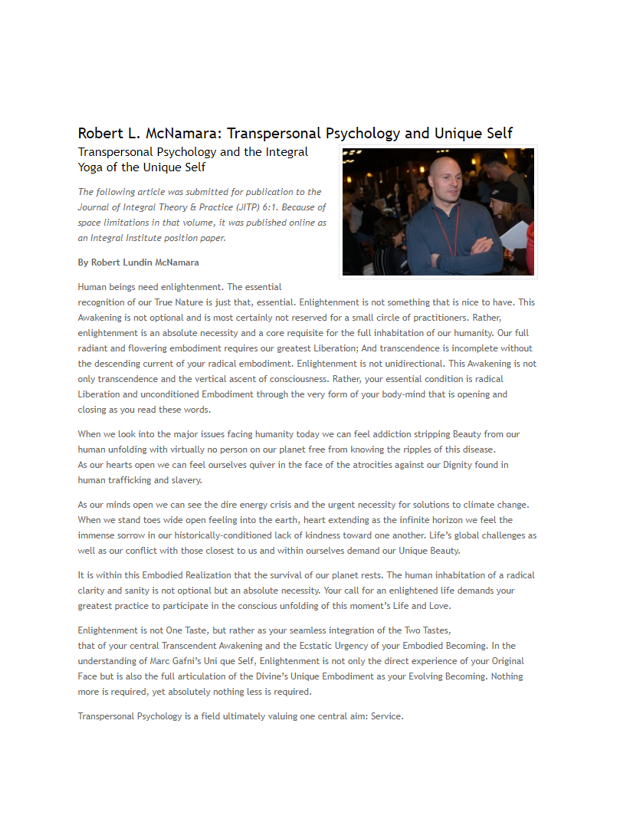Unique Self and Levels of Development (Rob McNamara)
The original paper was called Transpersonal Psychology and Unique Self and was submitted for publication to the Journal of Integral Theory & Practice (JITP) 6:1. Because of space limitations in that volume, it was published online as an Integral Institute position paper.
Here is a little excerpt:
Feel into the specific point with which your body-mind rests right now. Only you stand as the timeless unchanging Divinity known as your specific unfolding and evolution of Becoming. To inform, guide and possibly facilitate the stability and evolution of your own Unique Becoming we will next consider this Integral Yoga from a psychological perspective. We will go on a journey through Susanne Cook-Greuter’s conventional and post-conventional stages of ego development.
As you read, practice inhabiting these perspectives as a means of clarifying the evolving nature of your Unique Self and how you can participate with greater fullness in the integral yoking of Being and your Becoming.
Ego development provides a lens through which you can feel and see how perspectives, needs and directed actions towards meaningful ends transform and evolve into ever greater expressions of Embodied Fullness. At each stage of ego development you will briefly explore functional capacities and the state-stage expressions of the Unique Self. As you read, bring awareness as to where you are reading from. Notice how the stages through which you have progressed through can be felt, related to and clarified. Take note of what attracts your curiosity and what invites greater insight into your your integral yoga of the Unique Self. Finally, you may want to notice the ego stages that you have yet to developmentally establish and feel into the pull of your own evolutionary unfolding.
You can read the whole article on uniqueself.com.


 In her recent white paper from January 2014
In her recent white paper from January 2014  Contemplative practice can encourage the ability to focus and enter into a subject with minimal distraction and interruption. It can help a great deal with stress reduction.
Contemplative practice can encourage the ability to focus and enter into a subject with minimal distraction and interruption. It can help a great deal with stress reduction.